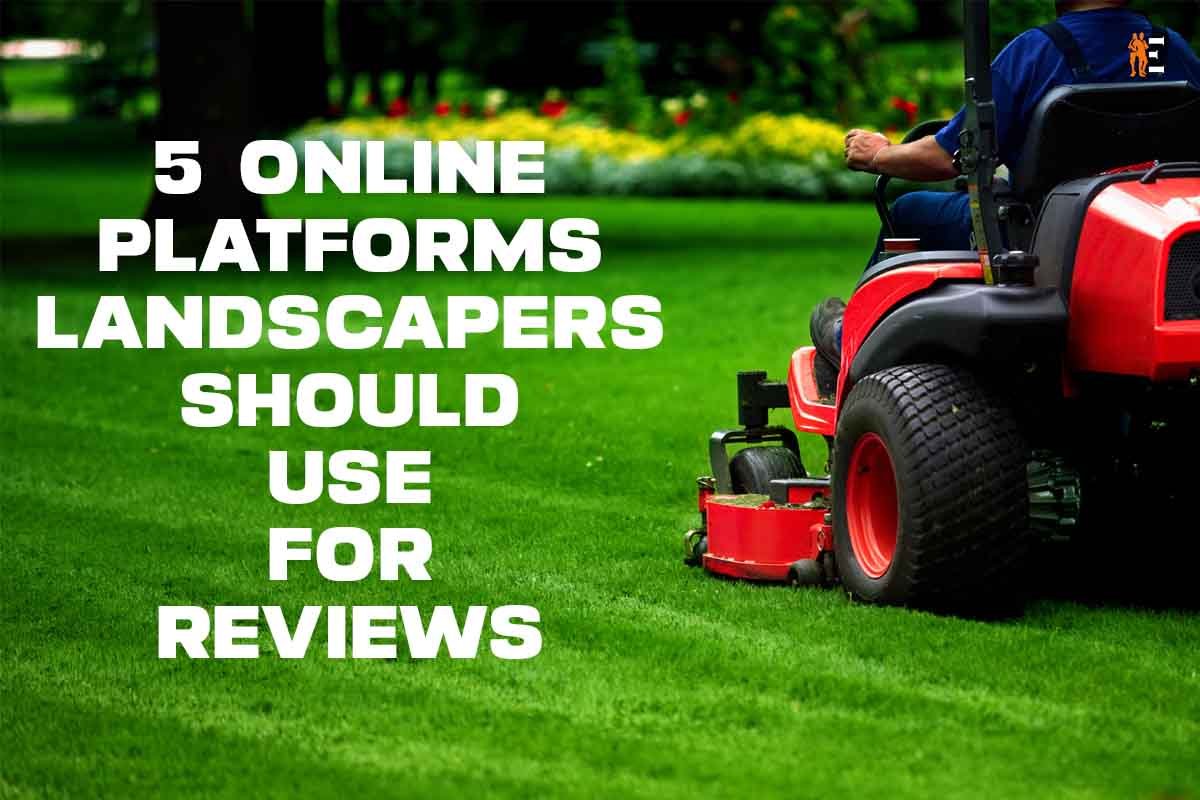If you shouldn’t attempt to accomplish everything at once, which review site should you put most of your attention on instead? Unfortunately, there is no simple solution to this problem. This tutorial will provide you with a summary of the top five Online Platforms Landscapers use for reviews that are relevant to the landscaping business, as well as recommendations on how to succeed in each of those sites individually.
Here are 5 online platforms for landscapers Use For Reviews:
1. Google Local
People who are looking for information often look it up on Google. The world’s most popular search engine has been making significant investments in geo-based reviews over the last several years under the brand name Google Local. Google will provide a brief listing known as the “Local Three Pack” for most searches for local companies. An example of this can be seen below, which is a search for “Memphis landscapers.”
If you can get your company to show up in the Local Three Pack, which is almost always towards the top of the page and for practically every local search phrase, you may expect a significant increase in the amount of traffic that your website receives.

Google displays the top three companies along with their aggregate ratings, phone numbers, hours of operation, and directions to the company if relevant on desktop displays. In addition, Google may occasionally display an advertisement at the top of the page; companies who use the Google Adwords local extension can make use of this feature.
The listings seem different when viewed on a mobile web browser, and the option to click to call is shown as the main call to action.
2. Yelp
Yelp is perhaps most well-known for its ratings of restaurants, but it is also a useful online platforms for landscapers to use when trying to drum up new business. Between its website and mobile app, Yelp saw more than 100 million unique visits during the spring of 2017.
There are a number of different routes that customers might use to locate your Yelp listing. When a user searches for a company, the results that appear in the top three spots are often advertisements that the business has paid to have placed there. The unpaid, organic results may be seen below the advertisements.
3. HomeAdvisor
HomeAdvisor, like Thumbtack, has been around since 1999 and was started with the purpose of connecting customers with experts. The consumer then submits a request together with their details on their job preferences, and the request is then automatically sent to the consumers’ network of service professionals.

There are a number of significant distinctions to be made between Thumbtack and HomeAdvisor, the online platforms for landscapers. To begin, HomeAdvisor does not allow you to pick and select the leads on which you would want to place a bid. Instead, you choose your preferences and determine your monthly budget, and then the leads are sent to you automatically.
From what we’ve seen, the prices for leads generated by HomeAdvisor are much higher than those generated by Thumbtack. On the other hand, HomeAdvisor provides you with complete contact information right away, but Thumbtack often prevents you from texting customers via their site until they provide their contact information.
4. Thumbtack
Thumbtack is an internet business that connects customers with local experts that have met certain qualifications. Because Thumbtack appears towards the top of almost every search result, the firm has been able to amass over one billion dollars in yearly income for its customers and 260,000 active service workers. Thumbtack isn’t your typical online platforms for landscapers like Yelp, Google, or Houzz; instead, it focuses on user-generated content.
Thumbtack is different from the other three in that it needs service workers to pay in order to bid on client requests. The other three are created for consumers to explore. The customer is not charged for the creation of the request, which is subsequently distributed to the relevant service providers in the region. The essential details concerning the task, the consumer’s zip code, and the day and time the project has to be completed are offered to the service providers. After then, service providers may pay to have a message sent to the client through the online platforms for landscapers.
Up to five different service experts may place bids on the work, and the price of each offer is determined by the nature of the task as well as the level of competition in the region. The consumer has the ability to read each bidder’s profile, which may include photographs, details of the company, and testimonials from previous clients. The question now is, what role doonline platforms for landscapers in this scenario? According to data provided by Thumbtack, experts who have five evaluations or more get employed around four times more often.
5. Houzz
People are able to evaluate different home renovation projects on the site known as Houzz, which places a significant emphasis on visual representations of finished work. The website is geared toward more extensive tasks such as house renovations and the installation of hardscape features. It might be a spot for you to concentrate on if your landscaping firm is geared toward the completion of projects of this kind.

The search pages are by far the most important method for customers to locate companies (seen below). It is essential to take notice of the fact that every other listing in the results is a sponsored advertisement, as shown by the tag reading “Sponsored” in the bottom left corner of the page. Houzz also includes company profiles (both sponsored and unsponsored) across its extensive picture area, which is where users may look for ideas for their next projects. This are the online platforms for landscapers.
To Know More About The Digital Tools And Platforms: 10 Best Digital Publishing Tools











